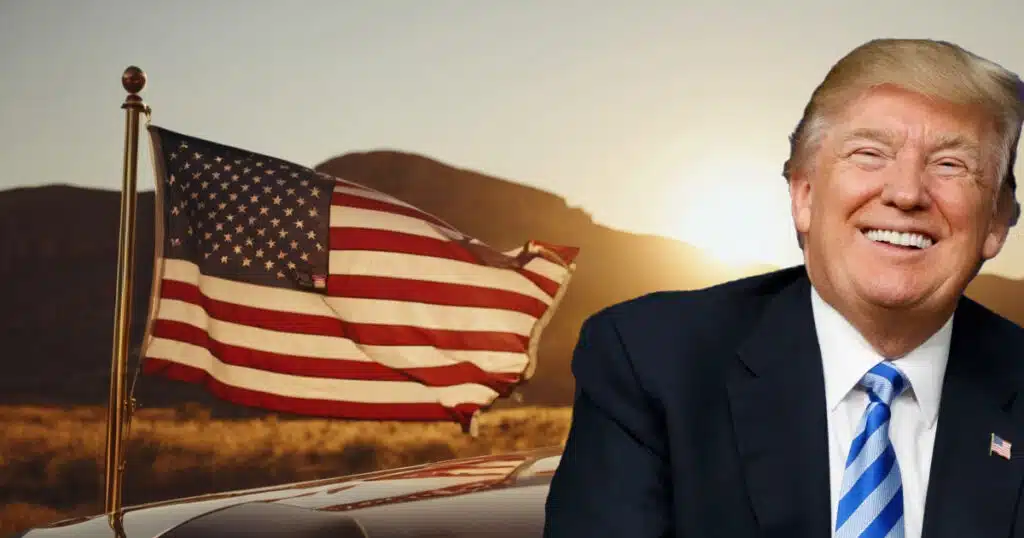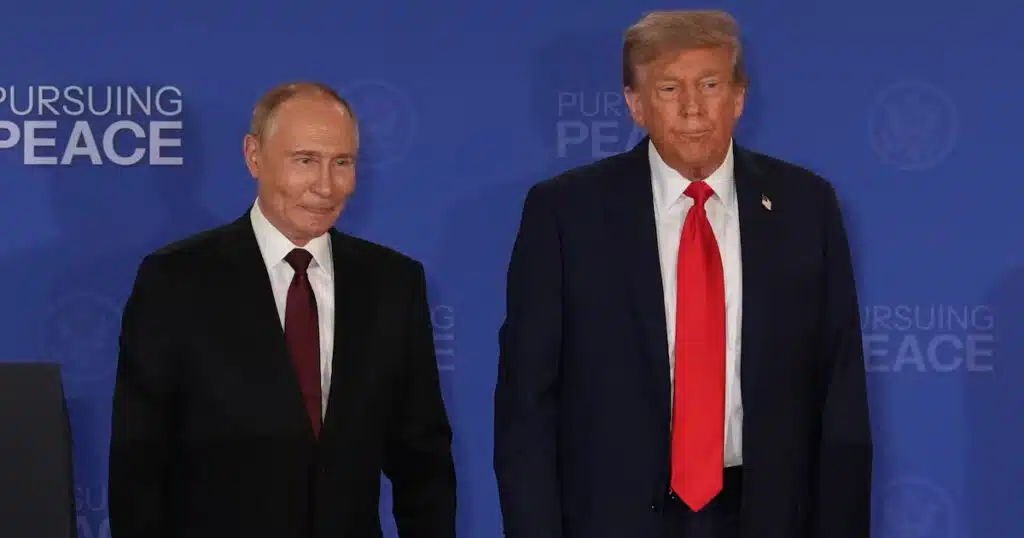
Tariffs Will Make America Rich Again
One of the reasons the United States won World War II was because we could outproduce our enemies. As White House Senior Adviser for Trade and Manufacturing Peter Navarro explained in a Fox News Sunday interview, the American “arsenal of democracy” permitted the Allies to triumph.
Navarro said the “military might” of the United States allowed “General George S. Patton” to take “Berlin…with trucks, Jeeps, and tanks that were made in the auto plants of the Midwest.”
Sadly, American manufacturing power has moved to countries like Mexico where “50 football field-sized assembly plants…are…making the engines for here,” said Navarro. As the country’s manufacturing capacity dissipated in recent decades, the United States became a consumer-based economy, fueled by Americans buying massive amounts of foreign goods.
President Donald Trump is intent on changing that dynamic and will be launching a new series of reciprocal tariffs on Wednesday April 2,“Liberation Day.” The next day, the President is planning on issuing “25% tariffs” on automotive imports into the United States.
Eventually so much revenue will flow into our country that the President envisions the Internal Revenue Service (IRS) being outpaced by an External Revenue Service, funded by foreign tariffs.
This funding transformation will not happen overnight. In the last fiscal year, the IRS collected $2.5 trillion from income taxes and $1.7 trillion from Social Security and Medicare taxes. In contrast, only $80 billion was collected from tariffs and fees.
Of course, prior to the passage of the 16th Amendment and the implementation of the first federal income tax in 1913, the nation’s government was primarily funded by tariffs. According to Douglas Irwin, Dartmouth College Professor of Economics, “From 1790 to 1860, tariffs accounted for 90 percent of federal revenue.”
Returning to such a federal government funding model is controversial and many business leaders are worried that the imposition of tariffs will harm the American economy. It is one reason the stock market has fallen in recent weeks.
Nonetheless, Navarro dismissed those concerns. In the Fox News Sunday interview, he said, “Message is that tariffs are tax cuts, tariffs are jobs, tariffs are national security, tariffs are great for America, tariffs will make America great again.”
Navarro stated that in the first Trump term, “we imposed historic tariffs on China, on steel and aluminum. We got price stability, and we got prosperity, and (will) get that again.” This claim is bolstered by Chinese economist Yang Zhou, who “concluded in a study that Trump’s tariffs on Chinese goods inflicted more than three times as much damage to the Chinese economy as they did to the U.S. economy.”
Inflation is not a concern Navarro claimed because “foreigners” will “cut their prices” to “absorb” most of the additional cost because “we’re the biggest market in the world…and they have to be here.”
According to Navarro, the automobile tariffs will generate “$100 billion,” while the other tariffs will generate “$600 billion.” He maintained that it would lead to “The biggest tax cut in American history for the middle class.”
As Navarro explained, one of the major goals of the Trump administration will be to encourage American consumers to buy vehicles made in this country. He said there will be “tax benefits, tax credits to people who buy American cars.”
The current situation for automobile manufacturing is troubling. Navarro noted Americans buy “16 million cars” annually, but “half” of that total have “virtually no American content” and the other half have “50 percent” with “foreign content.”
Over the last few decades, Navarro stated that “the Germans, the Japanese, the South Koreans, and the Mexicans have taken our manufacturing capability. So, (we must) get that back.”
While American consumers may experience temporary price increases, the overall impact of the tariffs will be extremely positive. It will boost American manufacturing and encourage more companies to move operations to our country.
Since President Trump started his second term, almost $3 trillion in investments in the American economy have been announced by multiple countries such as Saudi Arabia and companies such as Hyundai. This is largely due to the President’s pro-American economic policies, including the threat of tariffs. By setting up their manufacturing base in the United States, these countries and companies can avoid paying tariffs.
As a Trump White House fact sheet noted, the United States has the “lowest average tariff rates in the world” and in 2023, was saddled with a $1 trillion trade deficit in goods. Not surprisingly, this huge deficit is the “world’s largest.”
Fortunately, President Trump is addressing this trade imbalance. In an interview on NBC News on Saturday, he said, “The world has been ripping off the United States for the last 40 years and more.” Finally, an American President is placing the interests of our businesses and workers first.
Currently, many countries have established much higher tariffs on American products than we place on their products. Unfair “free” trade has been extremely detrimental to the United States. Therefore, there must be reciprocal tariffs to create trade that is both “free and fair.”
President Trump has already achieved success just in threatening tariffs. Several weeks ago, Columbia decided to accept deportees when faced with a 25% tariff. Trump remarked that “Colombia is traditionally a very, very strong-willed country, but it backed down rather than face import taxes.”
As always, President Trump will leave the door open to negotiation, but “only if people are willing to give us something of great value. Because countries have things of great value, otherwise, there’s no room for negotiation.”
As Shawn Fain, President of the United Auto Workers, noted, since the North American Free Trade Agreement (NAFTA) was passed in 1992, 90,000 manufacturing facilities have left the United States. In addition, in the last two decades, 65 American automotive plants have also closed.
Fain believes that “tariffs are a tool in the toolbox” to address this manufacturing collapse. Fortunately, America has a President willing to use everything “in the toolbox” to revive the American economy.
Jeff Crouere is a native New Orleanian and his award-winning program, “Ringside Politics,” airs Saturdays from Noon until 1 p.m. CT nationally on Real America’s Voice TV Network & AmericasVoice.News and weekdays from 7-9 a.m. & 6-7 p.m. CT on WGSO 990-AM & Wgso.com. He is a political columnist, the author of America’s Last Chance and provides regular commentaries on the Jeff Crouere YouTube channel and on Crouere.net. For more information, email him at [email protected].



